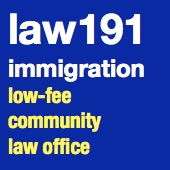A Parole Hearing
Tuesday I have my first parole hearing.
Before you say how come inmates have blogs, I should say that this is my client’s 13th parole hearing. Lucky 13?
I don’t believe in preparing someone for a hearing. Instead I want them to understand what the hearing is all about, and to see the hearing from the point of view of the parole board. And then look at themselves as the board sees them.
Does this work? Well, I know it works as far as the inmate I am working with is concerned. I see a real difference. Empathy is transformative. Will she get a date from the commissioners, or just a rain check? I have no idea.
What did I learn?
I learned that a parole hearing is like a mediation. Your job is to get your client on the same page as the commissioners. You are not preparing your client to testify in front of a jury, to defend their perception of reality, their memory of their crime or the validity of their conviction. You are not advocating. Yes you will make a closing argument, but nothing you say is really going to make a difference. Its what you said over the months before that counts.
And I learned there are ethical limits. If the physical evidence says your client did not kill Abraham Lincoln in the Ford Theater, then you can’t advise them to take responsibility for Abe’s demise, even if the board believes they did it.
If your client remembers things a particular way, you can get them to understand that the hearing is not about what they remember, but what they were convicted of. And memories are unreliable.
If something contradicts their memory, they have to eat it – not in the sense of “discovering” a convenient memory, but by accepting that events are seen differently by different people, and if they can empathize with their victims, they can respect accounts that differ from their own, and honor them when they talk about them.
And then there is the doubt. Have I pushed hard enough? Should I have asked for a waiver? Is the client really ready? Was I so busy getting them to look from other people’s point of view, that I didn’t look at their point of view. Did I miss stuff in the preparation? Does my memo suck?
But you can only do what you can do. My client has changed. She got something out of this process. And now its up to her. I was just the coach. I helped with the training. In the end its her race. Her life.
Update: She was amazing. She did the hard work. She may be going home.


July 16th, 2020 at 4:49 pm
It was interesting when you talked about how a parole hearing isn’t necessarily about what the client remembers, but rather what they were convicted of, since memories vary from person to person and are unreliable. According to my knowledge, it would be beneficial to work with a prison litigation specialist to help the inmates understand this and gain a clear picture of the situation. Your article provided some interesting facts about the role of parole hearings in the prison system, so thanks for sharing.